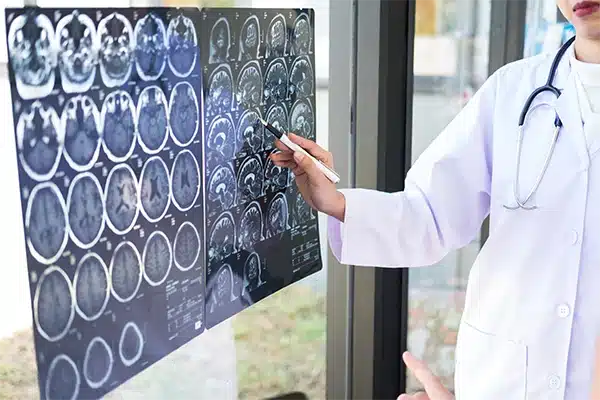Stroke and Heart Attack prevention starts with lifestyle. A healthy diet (The 10 foods that are good for your heart) and regular physical activity, along with smoking cessation, significantly reduce the risks.
It is important to undergo regular diagnostic tests at NefrocenterLab and medical check-ups. For this reason, NefrocenterCardio has first-rate specialists and state-of-the-art equipment for increasingly accurate examinations.
Stroke Prevention: Examinations to Perform
To prevent the risk of stroke, it is essential to periodically perform some crucial non-invasive tests.
Checking blood pressure is the first step in stroke prevention. If the values are not within normal range, the first thing the doctor will recommend is lifestyle changes. Only afterward, following appropriate examinations, will blood pressure be regulated through drug therapy. In this case, a check-up with one of NefrocenterCardio’s physicians can be essential to verify the cause of blood pressure, which when elevated can be a significant risk factor.
It is also important to monitor atrial fibrillation, which is one of the triggering causes of stroke. This is a cardiac arrhythmia, almost always asymptomatic, that in 20% of cases is a triggering factor for stroke. With an irregular heartbeat, blood clots can form which, when entering circulation, cause ischemic stroke.
The final examination to perform is blood glucose monitoring. Elevated fasting glucose levels promote atherosclerotic disease that alters arterial walls, causing subsequent occlusion that leads to both stroke and myocardial infarction.
Heart Attack Prevention: Examinations to Perform
At NefrocenterLab, it’s possible to undergo tests to discover if you have a predisposition to heart attack. Through a venous blood draw, cholesterol levels should be checked, both good (HDL) and bad (LDL). Bad cholesterol deposits in the arteries blocking them, while good cholesterol cleans them. In addition to cholesterol,
Subsequently, electrolyte levels including sodium, potassium, chlorine, calcium, phosphorus, and magnesium can be evaluated. In addition to these, CRP tests are performed, measuring C-reactive protein, which shows increased values in case of ongoing inflammation.
Fibrinogen tests are important to know blood coagulation levels, because if above normal it can lead to thrombosis risk.
Another test is for brain natriuretic peptide, a protein produced directly by the heart that promotes the elimination of excess fluids and sodium through urine.
The evaluation of troponin, creatine kinase, and myoglobin is performed when cardiac muscle damage is suspected, while the homocysteine test is fundamental to verify the risk of atherosclerotic disorders.
After completing these tests at NefrocenterLab, the next phase involves diagnostic examinations. The cardiologist, in addition to reviewing lifestyle and family history of cardiovascular diseases, might decide to perform more thorough examinations. At NefrocenterCardio, you can undergo
More in-depth examinations available at NefrocenterCardio include coronary CT scan, coronary angiography, magnetic resonance imaging, and myocardial scintigraphy.

